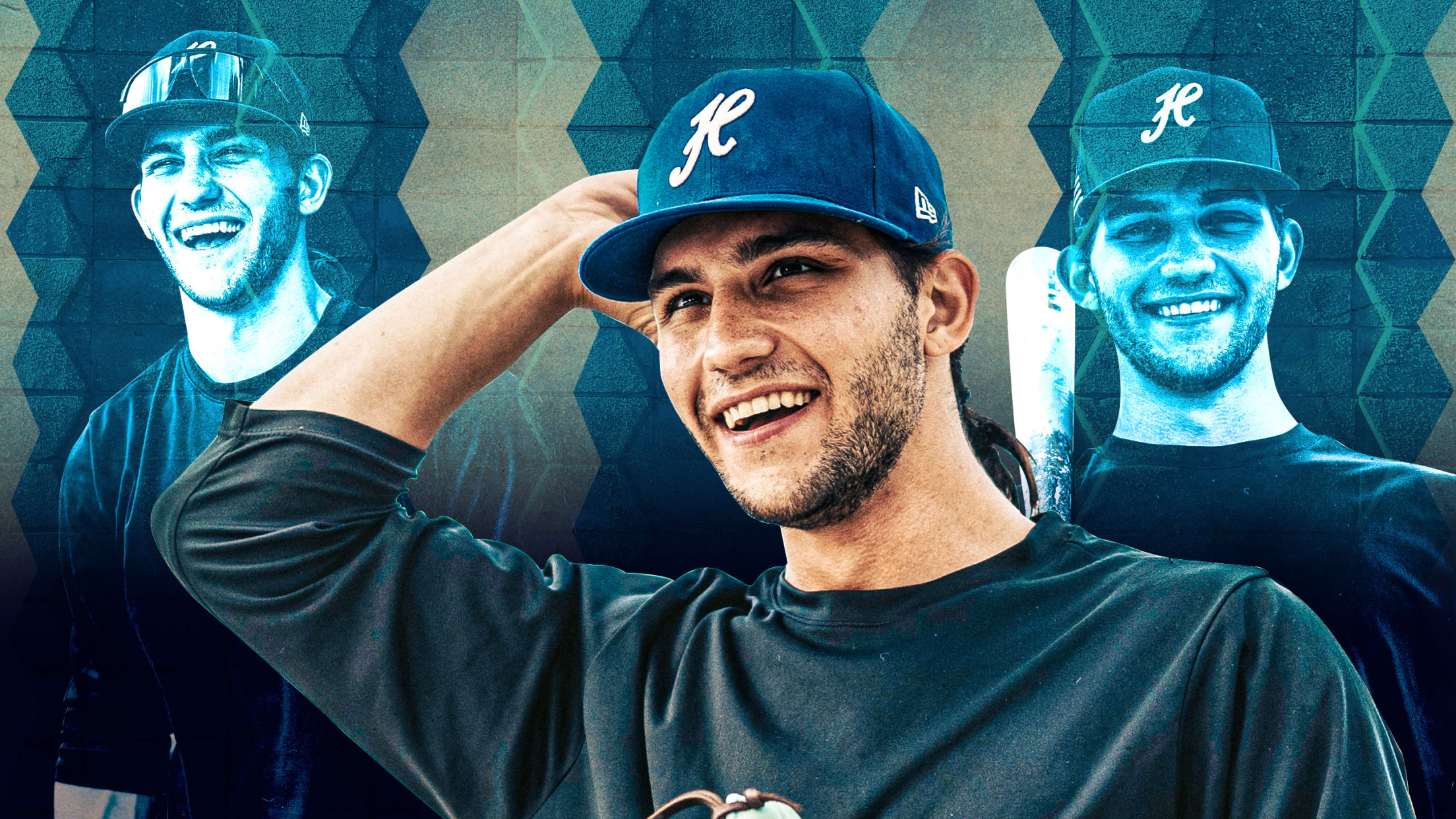
The last Greek ballplayer wants to bring baseball back to the country
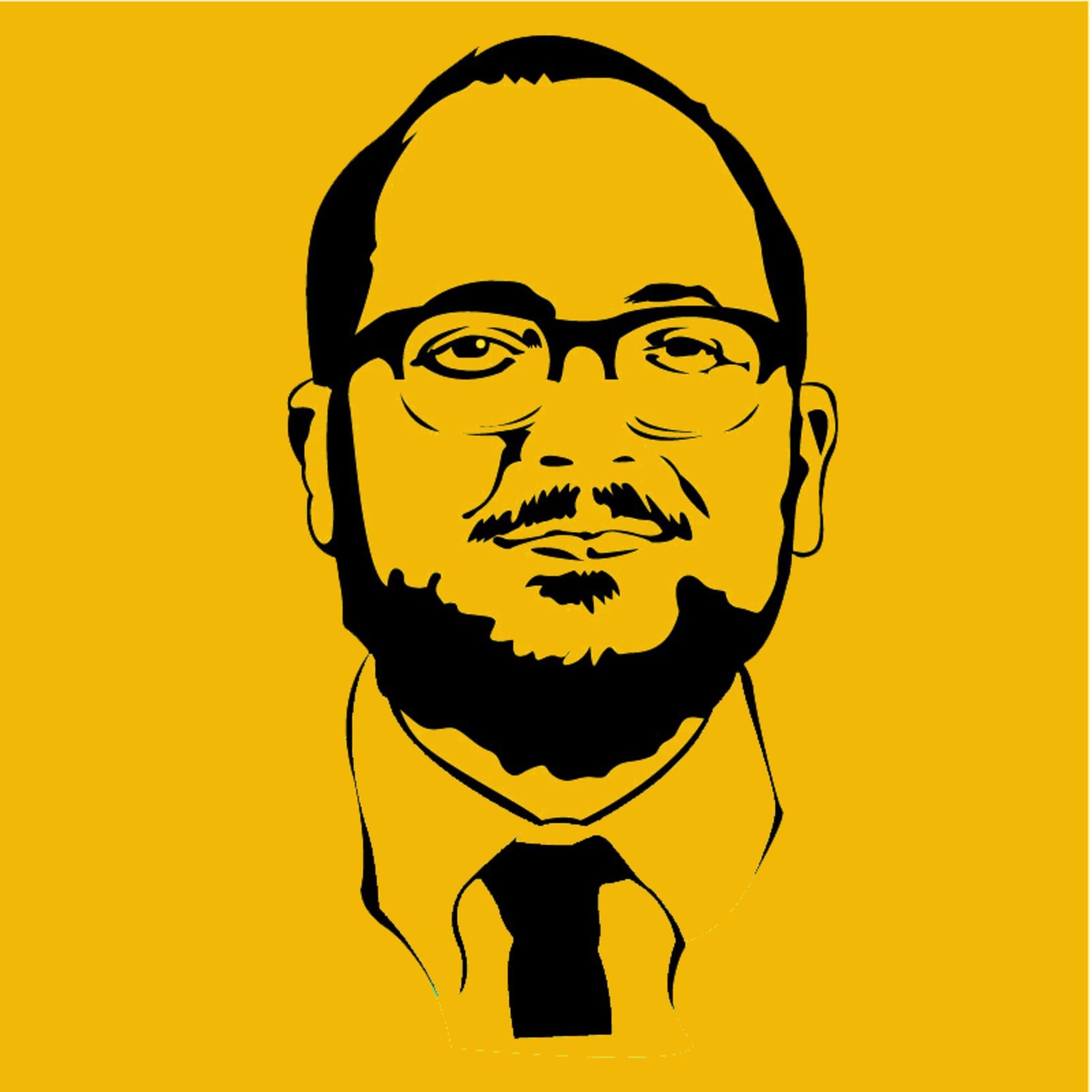
Loukas Soukeras is heading to Norway. It's not his first choice; he'd prefer to stay in his home country of Greece. But if Soukeras wants to continue playing baseball, to live his dream out on the field, he has no choice but to head to Oslo to join VIF V?lerenga in a few weeks time. That's because there's no baseball left in Greece. The fields are gone, ready to be paved over with condos and shopping malls. Because there are no fields, there are no youth teams. Without youth teams, there is no way to grow the game, to find a new generation of baseball players on the Aegean and Ionian seas.
Just 23 years old and with a shock of long, brown hair in a ponytail beneath his national team cap, Soukeras dreams of changing all of that in the future.
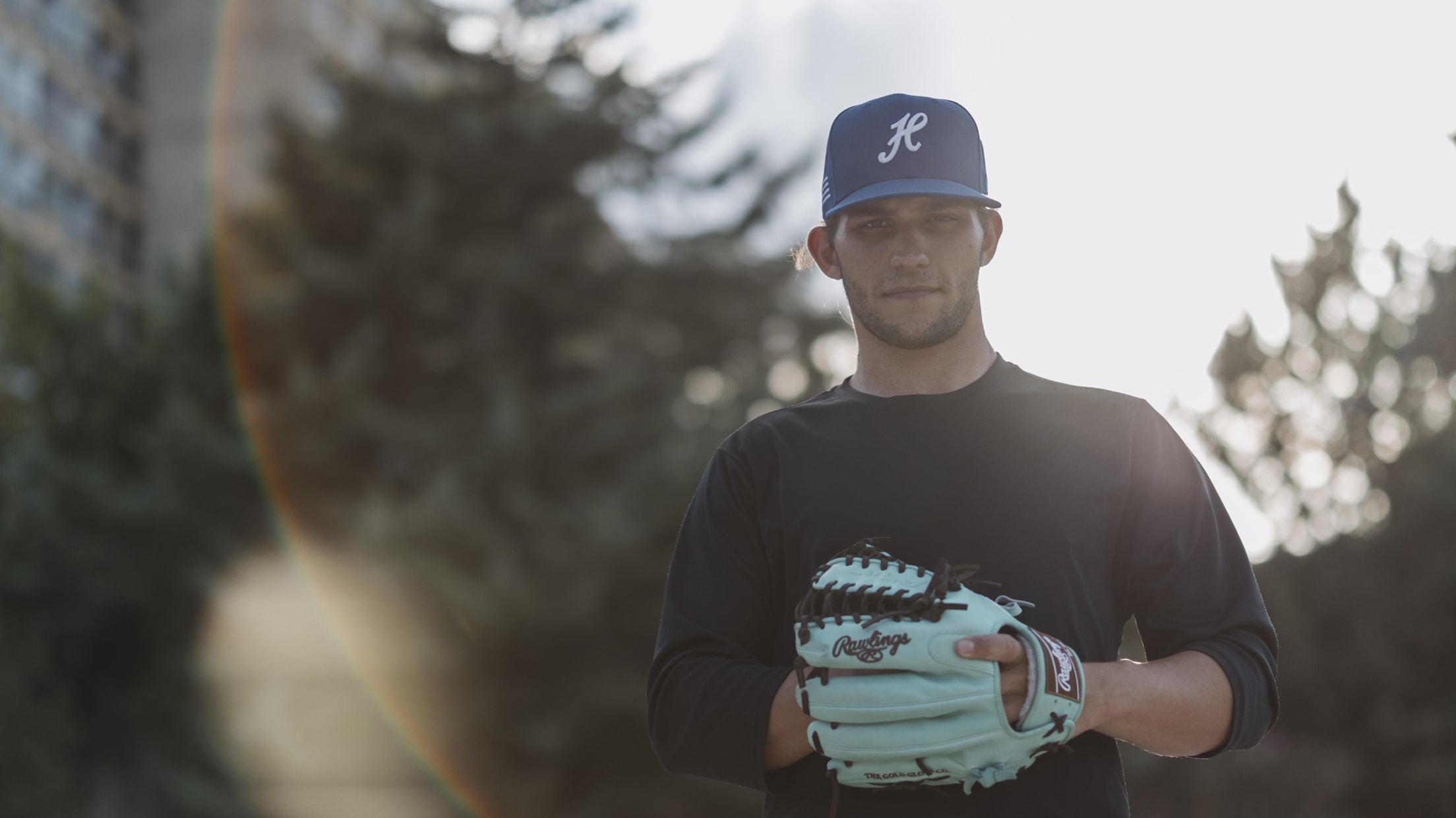
There was a time when Greek baseball was on the upswing. With financing help from the late Peter Angelos, previous owner of the Orioles, and with the 2004 Olympics coming up, baseball in Greece had its brief time in the sun. After Athens was awarded the Games in 1997, the Hellenic Amateur Baseball Federation was founded and began creating local leagues and competitions. The country built two stadiums at the Olympic Baseball Centre, with the larger and more impressive of the two -- Hellinikon Stadium -- seating up to 8,700 fans.
At the 2004 Games, Greece brought a powerful lineup buoyed by American pros with Greek heritage like former big leaguer Clay Bellinger and then-Minor Leaguer Nick Markakis leading the roster. Though the team finished seventh out of eight teams, it defeated Italy, 12-7, taking down a European giant, and lost by just one run to the eventual gold medal winners, Cuba, scoring three runs in the top of the ninth.
Baseball may not have been ready to take on soccer, basketball or volleyball for sporting supremacy in the nation, but it had established its foothold. There were senior teams, Little League teams and there were fields where those games could be played.
That's how Soukeras first came to the sport as a 12-year-old. He had a friend on a local youth team, who invited him to join the team's practice that weekend. As is the case so often, once Soukeras picked up a bat and felt the percussive rush when he connected with the ball, it was over. He was hooked.
"I had my first team practice with the other kids and I fell in love with it at the first glance," Soukeras told MLB.com. "We actually played a few games with the other teams, and I really loved the experience. Being able to have a teammates of the same age and compete with each other [was great.]"
There were "four or five" Little League teams at the time Soukeras said, with more adult teams taking part at the same time. While it may not have been the most popular sport, the most important thing was that if you wanted to play baseball, you could. It was accessible.
"We were playing games or a friendly game somewhere every week or two. We had a tournament. We had a very proper experience playing baseball. At least we had something," Soukeras said.
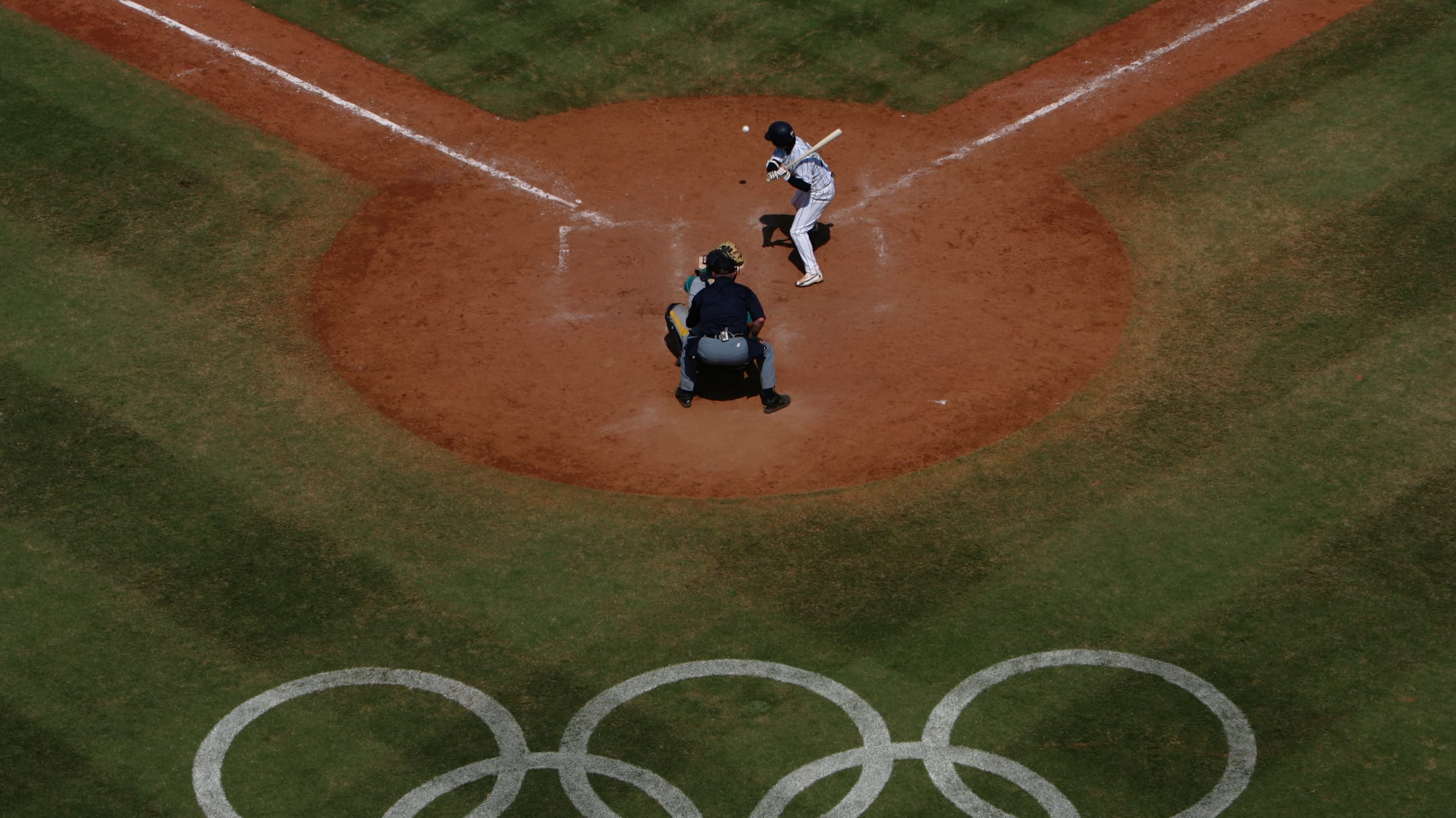
Unfortunately, that's not the case anymore. The Greek financial crisis, which began in 2009, led to the fields eventually being sold to local developers. For a few years, the stadiums stood there, no longer officially supported or cared for, but players still found a way over the fences and onto the field. The grass may have grown and the dirt may not have been finely manicured, but that never got in the way of people who just wanted a place to play.
"We used to have at least two training fields and the big stadium for hosting the Olympic Games," Soukeras said. "We also had two softball fields. We had quite the facilities. I think we had the best baseball field in Europe."
By this point, Soukeras was about 17 years old and had aged out of any of the youth teams. With no official senior league baseball around, the youngster eventually found a group of Latino ballplayers who were now living in Greece. They wanted to keep playing and formed a team. It may have amounted to little more than practices and friendly scrimmages against each other, but it was baseball.
"We actually got to the point where we were actually trespassing on the fields and having our own practice," Soukeras said. "The fields were the only place where we could actually play catch or have batting practice. We could still be in touch with baseball, but did not have proper training or practice. We kept that alive."
Eventually, though, the fields were bulldozed, the parks destroyed. Most players at this point would have given up, but Soukeras wanted to keep playing. So, he reached out to Tom Mazarakis for help.
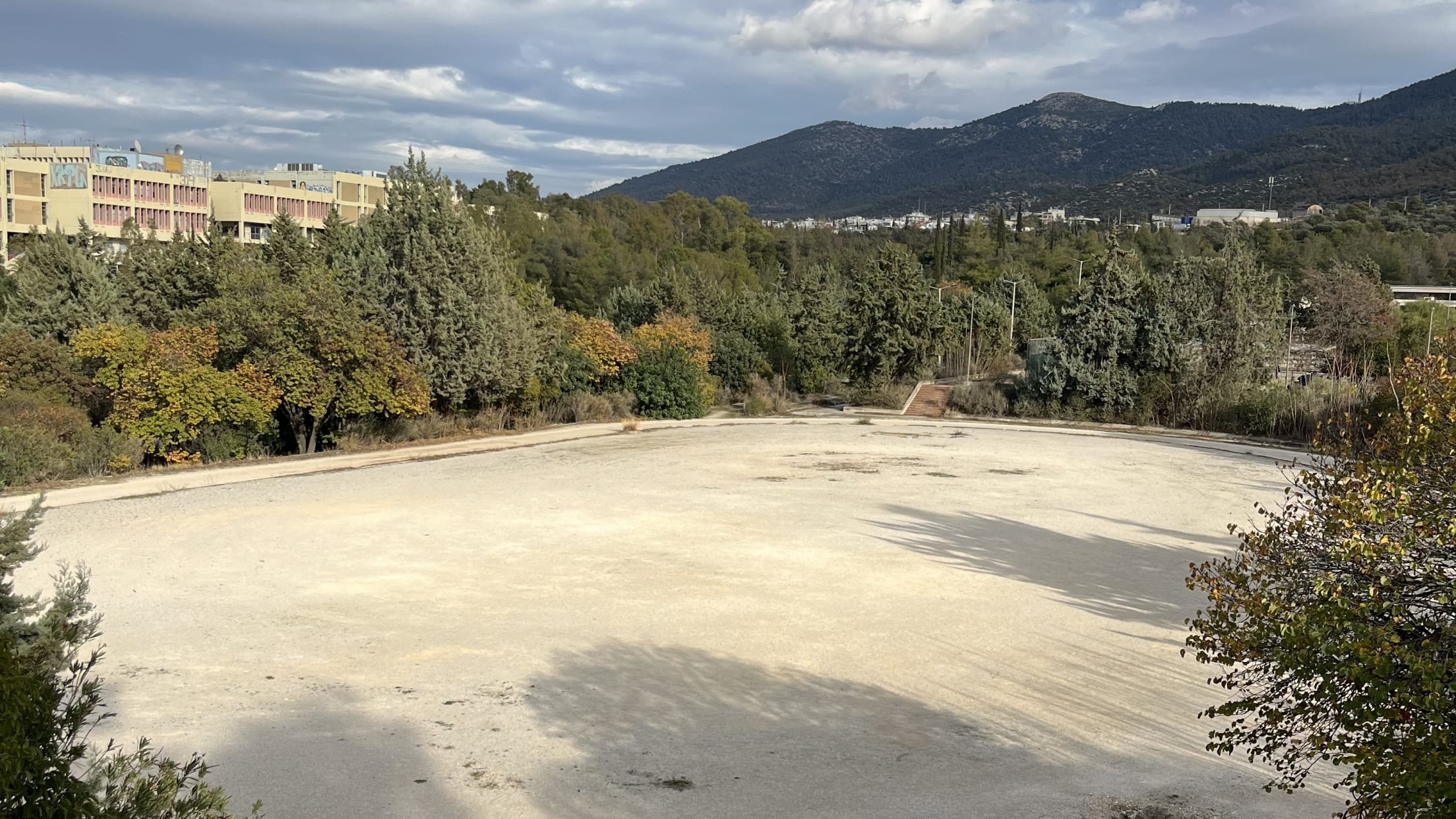
If Soukeras is the future of Greek Baseball, then its past and continued existence is thanks to Tom Mazarakis. Called the Abner Doubleday of Greek Baseball, Mazarakis is the current national team general manager, but his duties extend far beyond that.
Originally born in New York City to Greek parents, Mazarakis moved with his parents back to Greece when he was 15 years old in 1970. Like many children in the Bronx, Mazarakis was a big baseball fan and was disappointed when he couldn't find the game in his new country. Later, he would go on to form the first adult leagues in the country and coach his own children in the small Greek Little League when they were young.
Then, in 2000 and with the Olympics coming, Mazarakis raised his hand. Sure, the then-46-year-old had no professional experience, nor high-level coaching experience, but what he did have was a foundational knowledge and deep passion for the game.
"The little that I knew was good enough, so I volunteered to help in the Olympics," Mazarakis said. "They gave me a field crew position. I was responsible to draw the foul lines, pound the mound with clay, and just do the typical grounds keeping things that you do for baseball. It was a lot of fun, it was great."
When the Olympics ended and the baseball federation folded in 2006, he kept the game running. He led the fundraising efforts that enabled the senior national team to continue entering European tournaments and he searched for new Greek Americans who had the desire to line up for the team. At times, he's had to list himself on the roster to meet tournament minimums, even having to enter a game in 2016 at the age of 62.
Heading into the final inning of a contest that year, one of the players pulled up lame with a hamstring injury. There were two options: Forfeit or let Mazarakis take the field.
"I had a choice," Mazarakis said. "I could have just said, 'Sorry, I don't have anybody to put in,' or just go in the batter's box and stand there. I wasn't going to swing and that's what I did. I went into the batter's box and I didn't swing. I don't know why the umpire didn't just punch me out, but somehow he saw four balls."
Mazarakis jogged down to first base, but fortunately for him, his time on the basepaths was shortlived. The next batter grounded into a double play, Mazarakis joking that he wasn't going to be going in hard at second base to break it up.
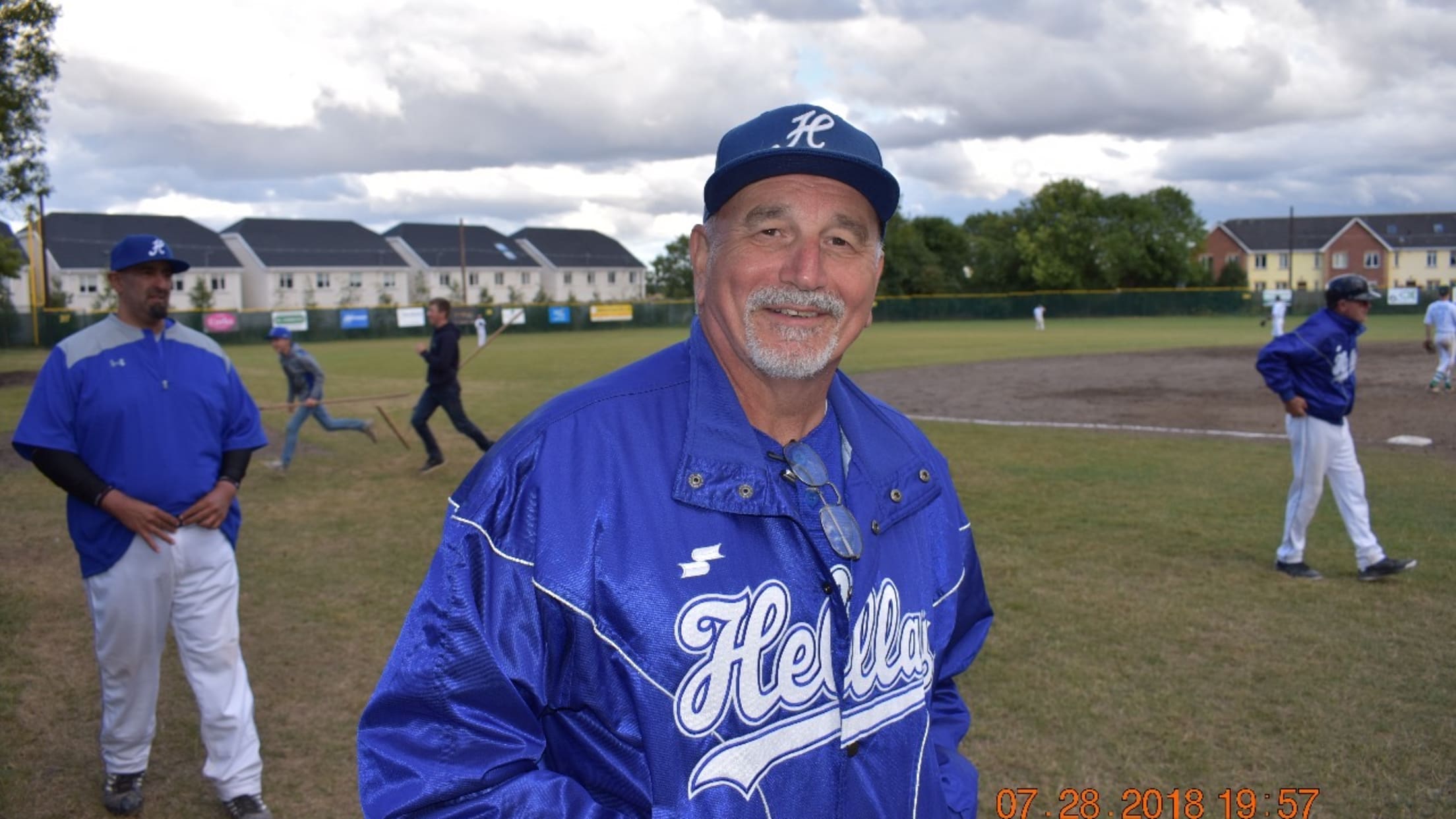
With hours of work and few rewards, why does he do continue to do it, over 20 years since first volunteering?
"That's what my wife keeps asking," Mazarakis said with a laugh. "Basically, the only explanation is that number one, yes, I love the sport of baseball. I love playing it. One of the biggest complaints I made to my parents was that they dragged me here when I was only 15 in 1970 was they didn't have any baseball. I played some softball, but it wasn't the same thing."
If love is one side of the coin that keeps him going, the other is anger.
"When the government just completely dropped [baseball] like a hot potato, I was really pissed," Mazarakis said. "I was really angry and I basically made it my mission in life to keep it alive. So I've managed to do that after all these years."
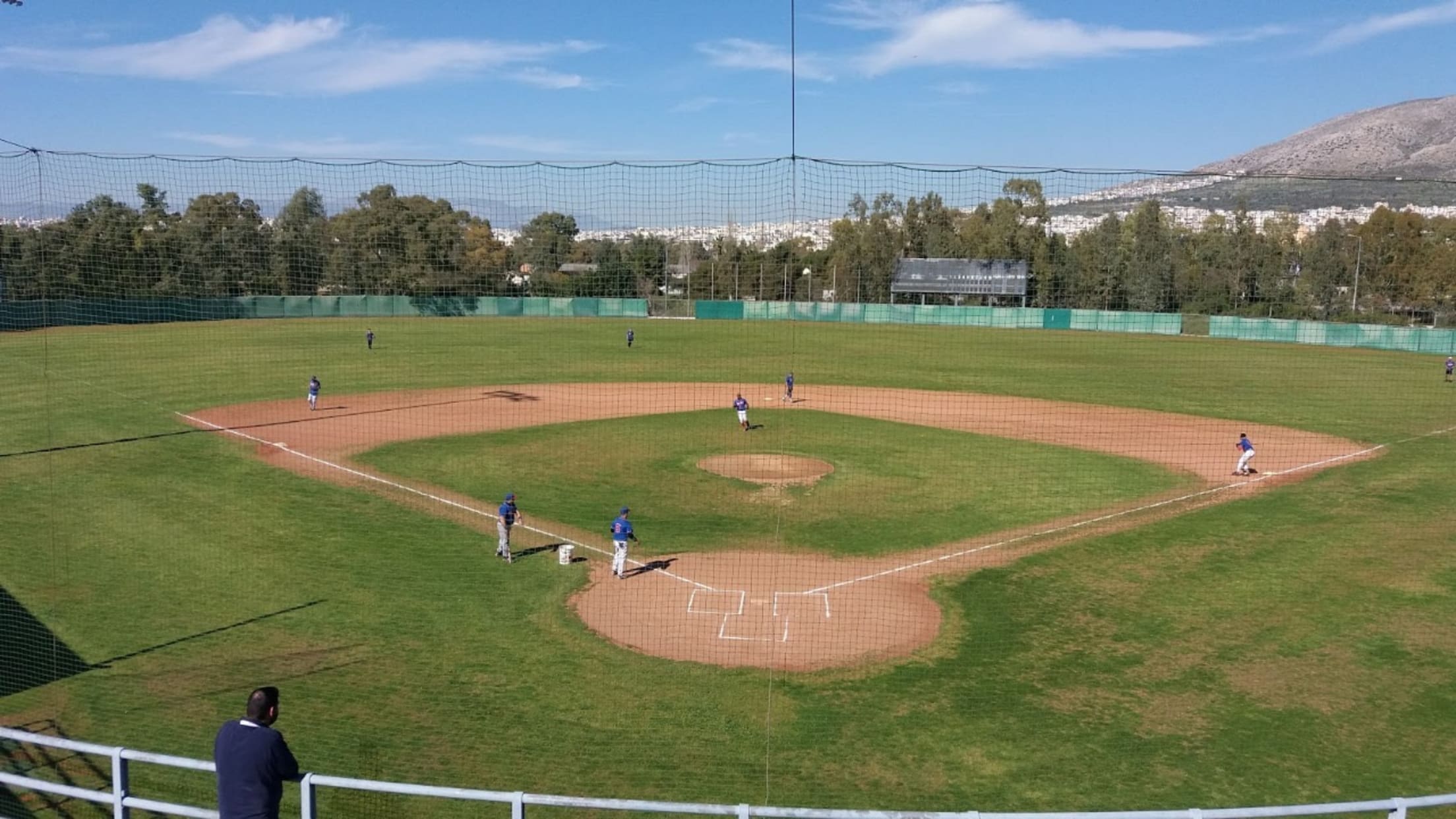
Even after the fields were sold, the men's leagues held on until 2014, allowing Tom to recruit both American-born players with Greek heritage as well as Greeks playing in the home league. But once the fields were locked and torn down, the number of homegrown players dwindled. Greece was even relegated all the way to the C-pool of the European Championships in 2018 -- the third tier of the biggest European tournament -- playing teams like Ireland, Finland, Norway, and Slovenia, a far cry from the 2004 Olympics.
Enter Soukeras. Before the Greek team headed to Lithuania in 2021 for the European Qualifiers, Soukeras' old Little League coach gave Mazarakis a phone call.
"I've got this kid," the coach told Mazarakis. "He's not a great player, but he loves the game, and it would be a great experience for him just to come. He has no expectations to be a starter or anything like that. He just wants to be part of the team."
Mazarakis didn't know the youngster at the time, but agreed, eventually giving Soukeras a few innings in the outfield and a few at-bats. He could tell Soukeras was nervous, but he acquitted himself well. When the team went to Italy later that fall for the main tournament, Soukeras was back on the roster.
"It really affirmed his passion for the game again," Mazarakis said. "When we got back, he asked me if I could find a team for him to go and play on somewhere, anywhere."
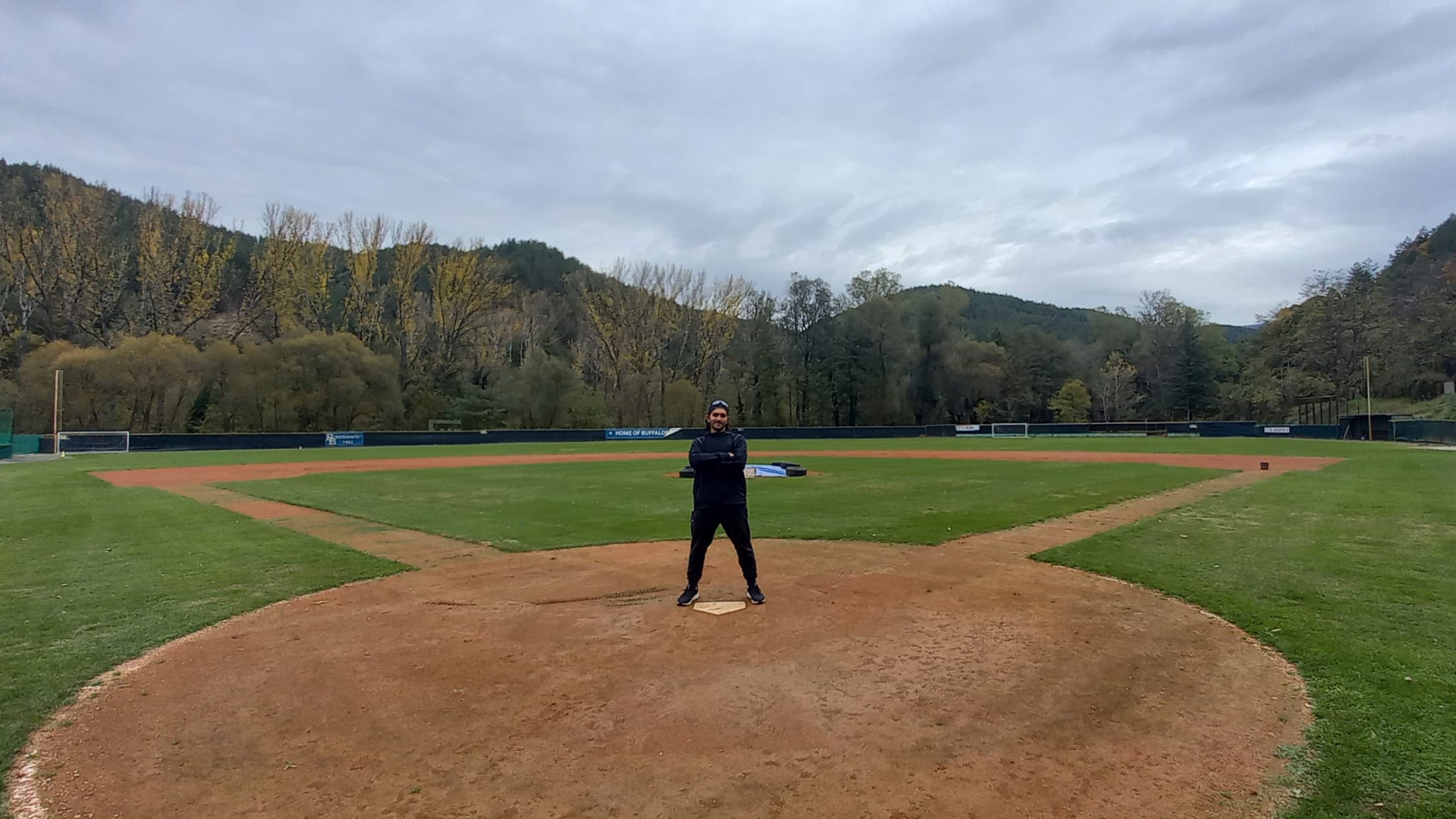
After a few calls, Mazarakis found a spot for Soukeras: He would be heading to Bulgaria to line up for the Blagoevgrad Buffaloes. It may seem odd for an American reader, but it was in Bulgaria -- the nation ranked No. 62 by the WBSC -- that Soukeras, for the first time in his life, got a chance to play for a real team.
"This was my first time being a part of a team," Soukeras said, a wide smile on his face. "Those were my first lessons as a baseball player. How do you react when a play starts or when you make an error? This is how you develop your personality on the field."
He had spent years showing up to an empty lot, just so he could continue playing the game. Finally, in Bulgaria, he would get to don a uniform and practice on an actual baseball field every week.
"They have a field, they have facilities where you can actually train there. Each town has at least one field. Sofia has two fields and one softball field. There's games, you have the chance to actually play somewhere," Soukeras said.
After two years in Bulgaria, Soukeras returned home to Greece. There was a plan to bring the game back to the nation.
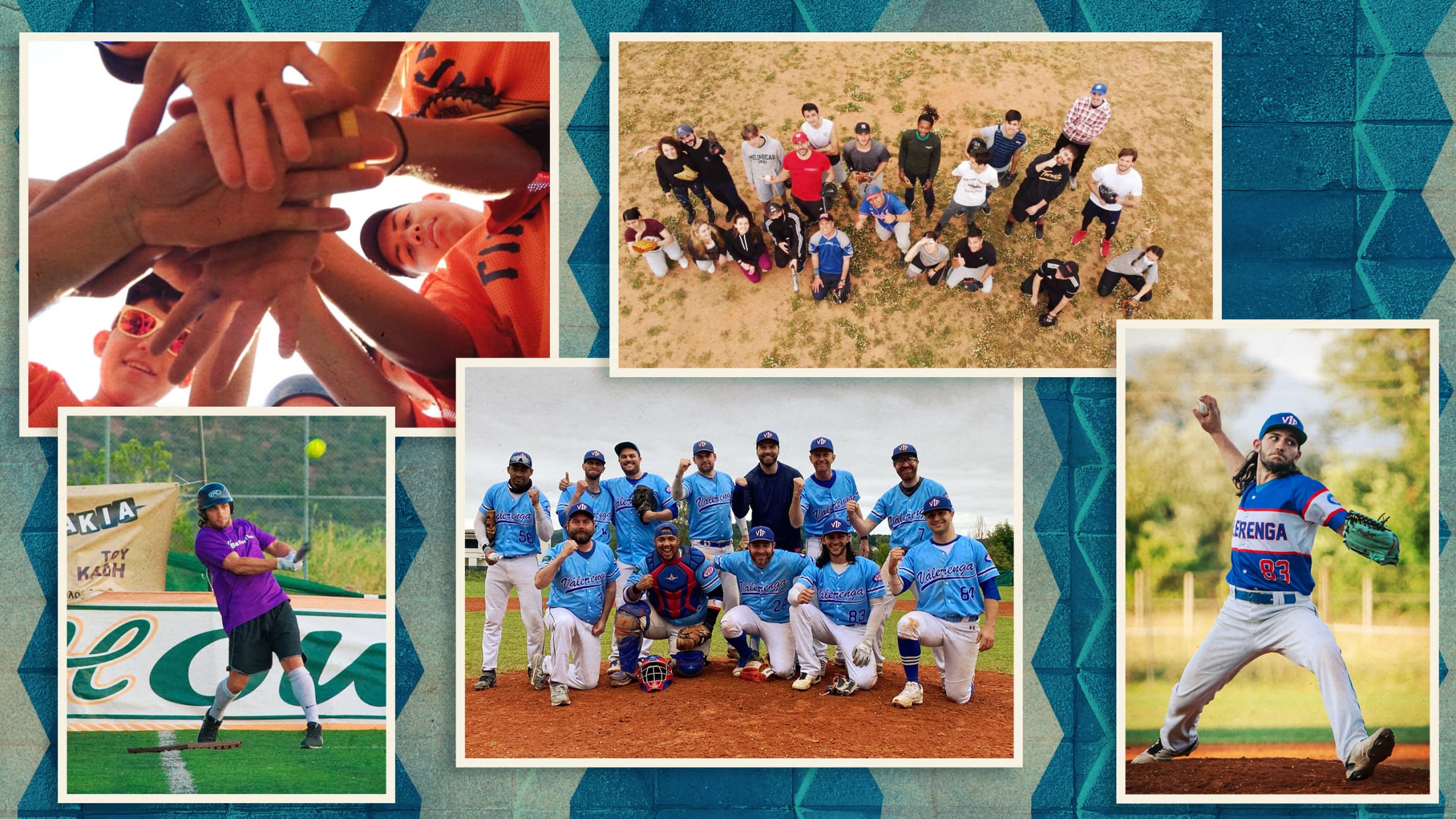
Despite the challenges that the national team has faced -- a lack of funds, fields, and players -- they have managed to return to the A-pool of the European Championship, where they'll compete this fall beginning in Italy. Mazarakis' recruiting has led him to find enough talented Greek-Americans that they've been able to hang with the top nations in Europe. That includes former Brewers Minor Leaguer Noah Zavolas, who has become an integral part both on and off the field. He knows the sacrifices that he's made to continue playing baseball -- both professionally in America and now to line up for the nation of his ancestors -- but he's blown away by what Soukeras has done.
"I work my ass off to get to play as much baseball as I have," Zavolas said. "But I look at what he's doing, what he's done, I don't know if I could have done that."
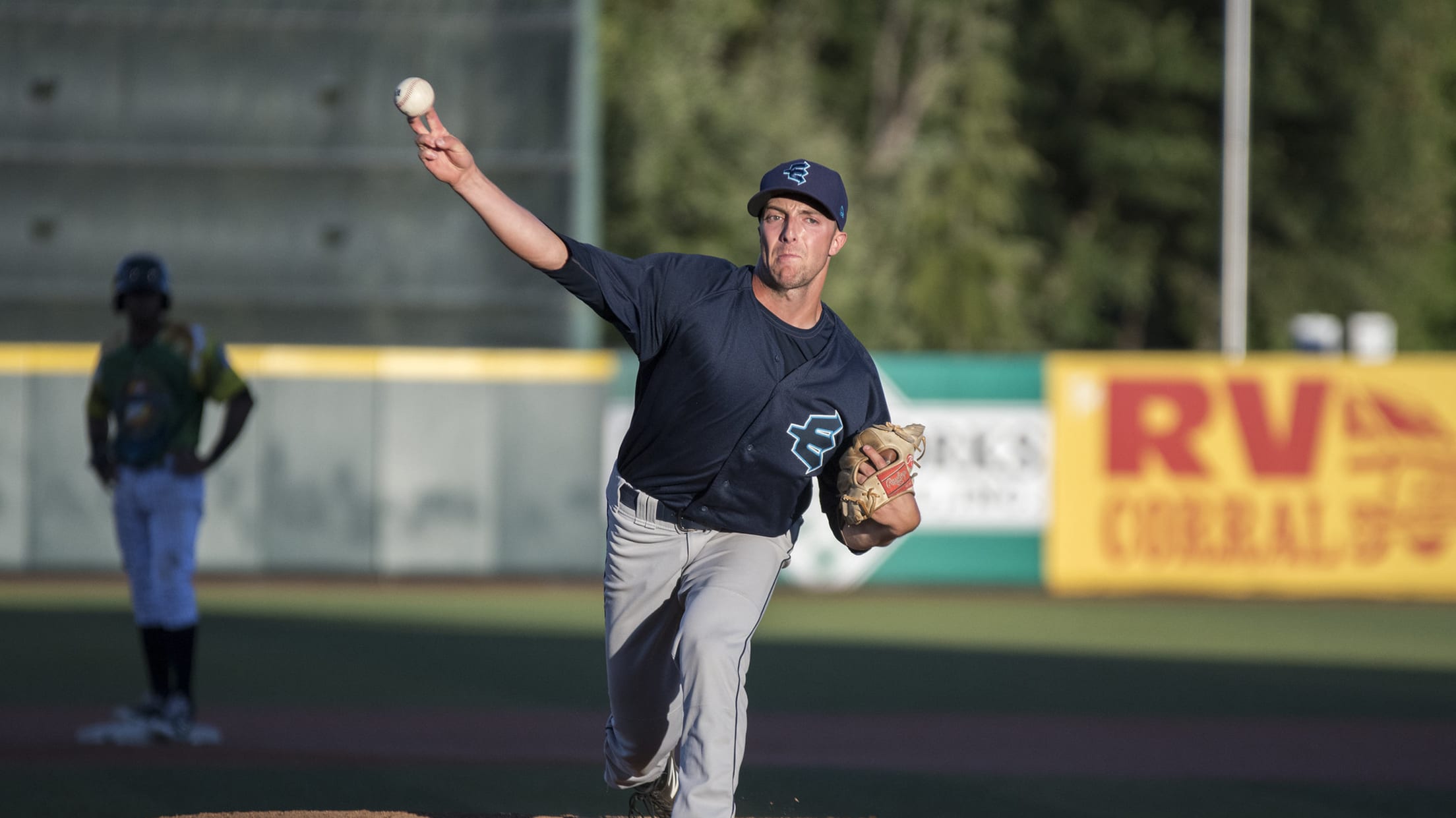
The goal now isn't just to compete on the international stage, but to grow the sport at home.
"This is how we have to do it, because we don't have any players coming from Greece, because there's no baseball in Greece," Zavolas said about the amount of Americans on the roster. "And that's the other side of what I consider to be a program with two missions that complement each other: One is develop the national team and make a push to L.A. 2028 [Olympics] because I think that's the overarching goal, that's visibility, that's a fantastic story, and it's doable. And to get there, we have to bring baseball back to Greece."
To do that, Soukeras and about 14 other men and women recently earned their coaching licenses. They didn't just need to know how to play and teach baseball, but had to learn a variety of other skills, including general anatomy and physiotherapy. There may not be fields to play on, but now there are people who can teach the game to children. As anyone who has ever seen a child pick up a bat and a ball, they know that the game often sells itself after that.
"It's very important that we get started from somewhere," Soukeras said. "Because if you want to have a team, you need to have a coaches. So that's the big first step for the Greek Federation, starting all over again."
"The idea that Greek baseball has a Greek presence, and there are people in Greece that want this back, that want to give the game back to Greek children, it makes sense," Zavolas said. "I wouldn't be an athlete without baseball. I'm maybe six-foot on a good day in cleats. I wouldn't have had this opportunity to live this life if not for the very specific set of skills that throwing a baseball 60 feet, six inches on a slight downslope requires. I think Loukas is the same way in that, no, he's not six-five, he's not a basketball player. He doesn't run like the wind. He's not going to be a soccer player, a football player. He fell in love with baseball, and he was good at it, and he is just way, way better a baseball player than you would ever expect for someone who lives in a country where they do not have baseball fields."
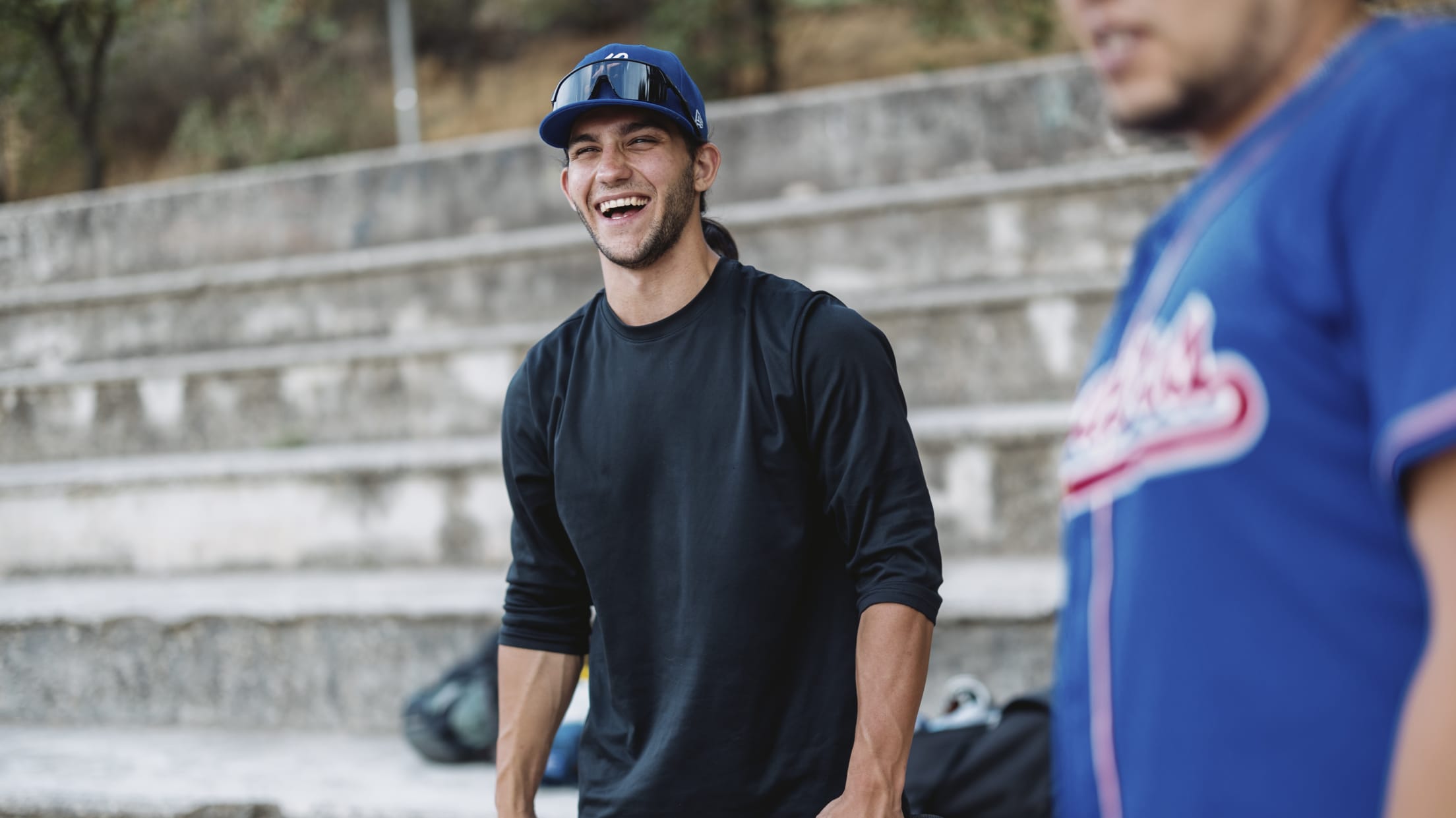
While Soukeras heads to Oslo to begin his season, activity is already happening on the ground in Greece. The federation -- largely spearheaded by Mazarakis and Zavolas -- is reaching out to spread the word and speaking with middle schools interested in the game. There will be a Baseball5 tournament held in May at the Stavros Niarhos Institute. The dream of the Olympics and the World Baseball Classic may seem far away, but it all has to begin somewhere.
"Being the only active baseball player in Greece, I feel that everyone is hoping for me to get this started again," Soukeras said. "My dream is to do something and build a field, have our own space so we can actually start from somewhere."
They've gone school-by-school, showcasing the game, and were met with enthusiasm everywhere they stopped. There may be a long way to go, but Soukeras -- just like the young children he's met -- is excited.
"Every time, young kids came to me and they would ask me, 'Where can we train for baseball? Where can we meet you, where can we can start?'" Soukeras said. "We're working on it, but we will get there."